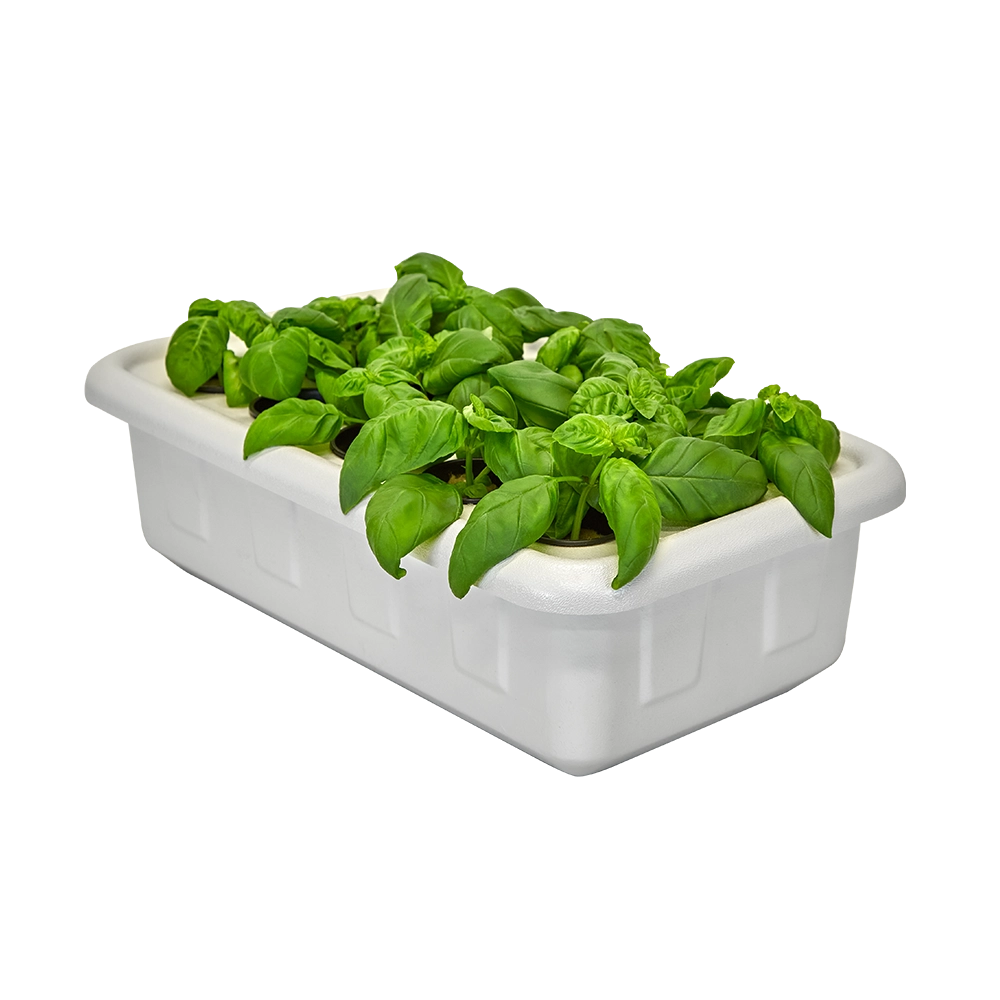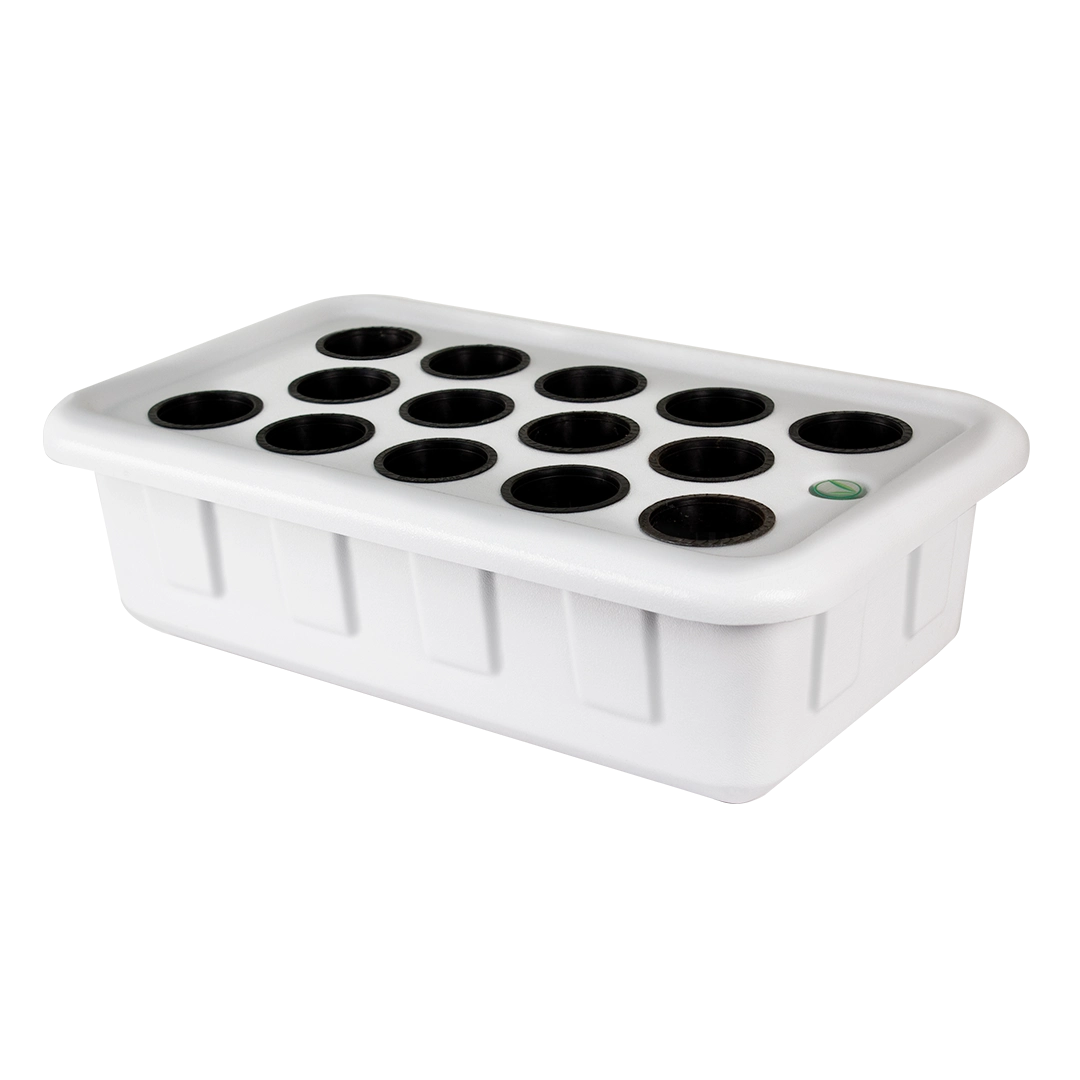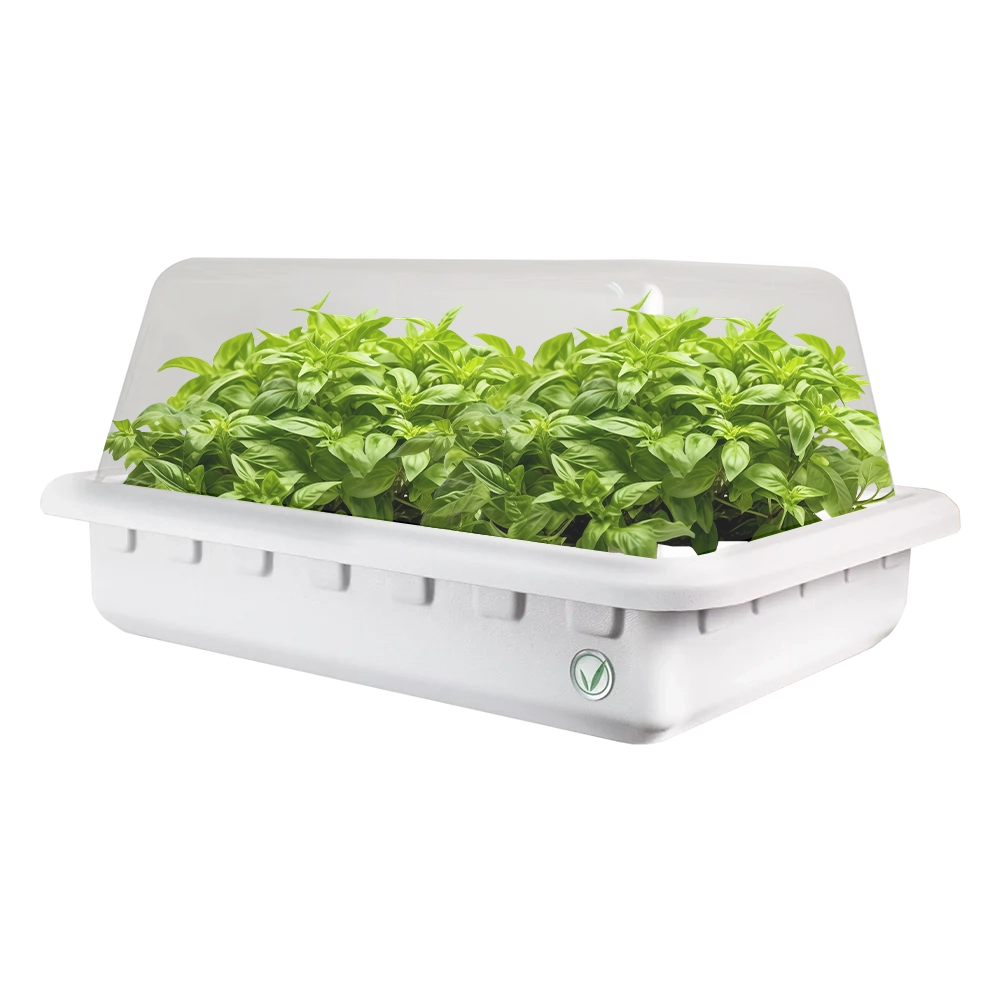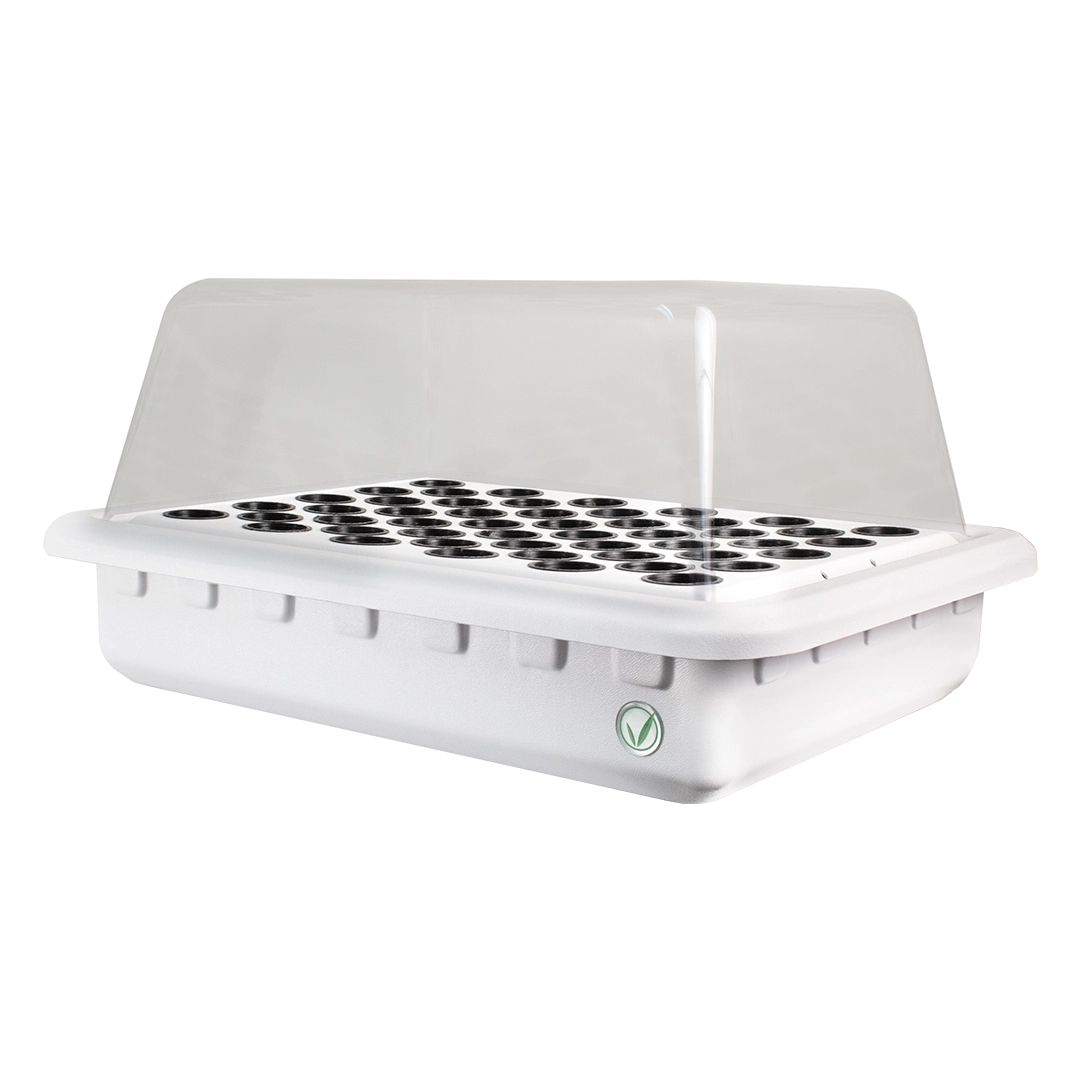Hydroponic Cloner

What Is an Aeroponic Cloner and How Does It Work?
An aeroponic cloner is a specialized system used to rapidly and effectively propagate plants. Unlike traditional methods that rely on soil or other growing mediums, aeroponic cloners suspend plant cuttings in air and mist their roots with a nutrient-rich solution. This process stimulates faster root growth and improves overall success rates, making it an ideal choice for anyone looking to clone plants efficiently. At SuperPonics, our aeroponic cloners are designed to optimize this process, ensuring your plant cuttings develop strong, healthy roots quickly.
How Does an Aeroponic Cloner Work?
The mechanics behind an aeroponic cloner are simple yet highly effective. Here’s how it works:
Cutting Placement: Plant cuttings are placed in collars that suspend the stems in a chamber, leaving the roots exposed.
Misting System: A pump delivers a fine mist of water and nutrient solution to the exposed roots at regular intervals.
Oxygen-Rich Environment: Because the roots are suspended in air, they receive a continuous supply of oxygen, which promotes faster root development.
Lighting: Low-intensity lighting ensures that the cuttings focus on root development rather than growing leaves.
The Benefits of Using a SuperPonics Aeroponic Cloner
Using an aeroponic cloner for plant propagation offers numerous advantages over traditional methods. Here’s why SuperPonics aeroponic cloners are the best choice:
1. Faster Root Development
The continuous misting and high oxygen levels in an aeroponic cloner encourage roots to develop faster than in soil or other hydroponic systems. This means you can propagate plants in a fraction of the time.
2. Higher Success Rates
Because aeroponic cloners provide an ideal environment for root growth, the success rate for cloning is significantly higher. Your cuttings are less likely to suffer from dehydration or overwatering, two common issues in traditional methods.
3. Nutrient Efficiency
SuperPonics aeroponic cloners are designed to deliver nutrients directly to the roots in a highly efficient manner. This not only accelerates root growth but also reduces nutrient waste, making it an eco-friendly option.
4. No Growing Medium Needed
Aeroponic cloners do away with the need for soil or any other growing medium, which can introduce pests, diseases, or contaminants. The result is a cleaner, healthier growing environment for your plant cuttings.
How to Set Up a SuperPonics Aeroponic Cloner
Setting up your SuperPonics aeroponic cloner is straightforward. Follow these steps to ensure optimal performance:
Step 1: Prepare Your Cuttings
Select healthy cuttings from the parent plant, ensuring that each cutting has at least one or two nodes where roots can form. Trim off the lower leaves to prevent them from being exposed to water, which can cause rot.
Step 2: Insert the Cuttings into the Cloner
Place the cuttings into the collars, making sure that the stems are suspended in the air chamber, while the roots are exposed to the misting system.
Step 3: Fill the Reservoir
Fill the cloner’s reservoir with water and add a balanced nutrient solution designed for plant cuttings. Be sure to follow the manufacturer’s guidelines for nutrient ratios to avoid overfeeding or underfeeding your cuttings.
Step 4: Set the Misting Cycle
Program the timer on your aeroponic cloner to mist the roots at regular intervals. Most cloners will mist for 30 seconds to a minute every few minutes, ensuring the roots remain moist without oversaturating them.
Step 5: Monitor Lighting and Temperature
Place your cloner under low-intensity grow lights and ensure the surrounding temperature remains between 70°F and 80°F (21°C and 27°C). Excessive light or heat can stress the cuttings and hinder root development.
Common Issues and How to Fix Them
Even with the best systems, issues can arise. Here are some common problems you might encounter with an aeroponic cloner and how to fix them:
1. Clogged Misting Nozzles
Over time, nutrient salts and debris can clog the misting nozzles. To prevent this, clean the nozzles regularly and use filtered water to reduce buildup.
2. Slow Root Growth
If your cuttings are taking longer than usual to develop roots, check the nutrient levels, water pH, and oxygen levels. Ensure the misting intervals are appropriate for your plant variety.
3. Root Rot
Root rot can occur if the roots are oversaturated with water. Adjust the misting cycle and ensure proper drainage to prevent water from pooling in the cloner chamber.
Why Choose SuperPonics Aeroponic Cloners?
SuperPonics offers aeroponic cloners that are designed for efficiency, ease of use, and durability. Whether you’re a home grower or managing a commercial operation, our aeroponic cloners provide superior performance. Here’s why SuperPonics is the best choice for aeroponic cloning:
High Success Rates: Our cloners are engineered to maximize root growth, resulting in faster propagation and higher success rates.
Durable Design: Made from high-quality materials, SuperPonics cloners are built to last and provide reliable performance season after season.
Easy to Use: Our cloners are designed with simplicity in mind, making them accessible to both beginners and experienced growers.
Take Your Plant Propagation to the Next Level with SuperPonics Aeroponic Cloners
If you're looking for a fast, efficient, and reliable way to propagate plants, a SuperPonics aeroponic cloner is the perfect solution. By providing the ideal environment for root growth, our cloners help you achieve faster, healthier results with less effort. Whether you're cloning herbs, vegetables, or flowering plants, SuperPonics aeroponic cloners will help you achieve better success rates and stronger plants. Try SuperPonics today and take your plant propagation to the next level.
Frequently Asked Questions
How long does it take for roots to form in an aeroponic cloner? Roots typically begin to form within 7-10 days, but this can vary depending on the plant species and environmental conditions.
Do I need to use a specific nutrient solution for an aeroponic cloner? Yes, using a nutrient solution formulated for plant cuttings will help ensure faster and healthier root development.
Can I clone any type of plant with an aeroponic cloner? Most plants, including herbs, vegetables, and flowers, can be successfully propagated using an aeroponic cloner. However, certain plants may require specific environmental adjustments.





